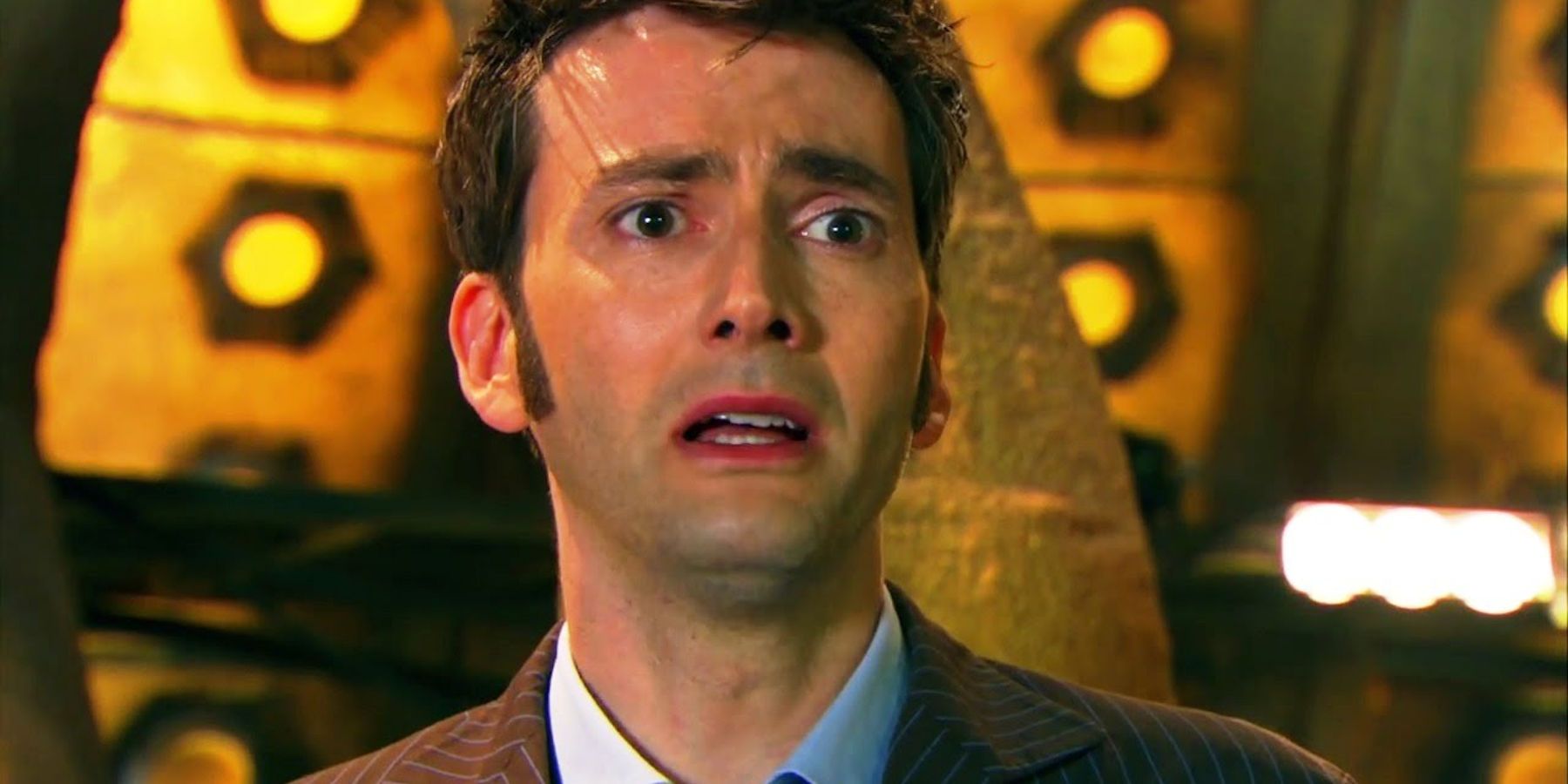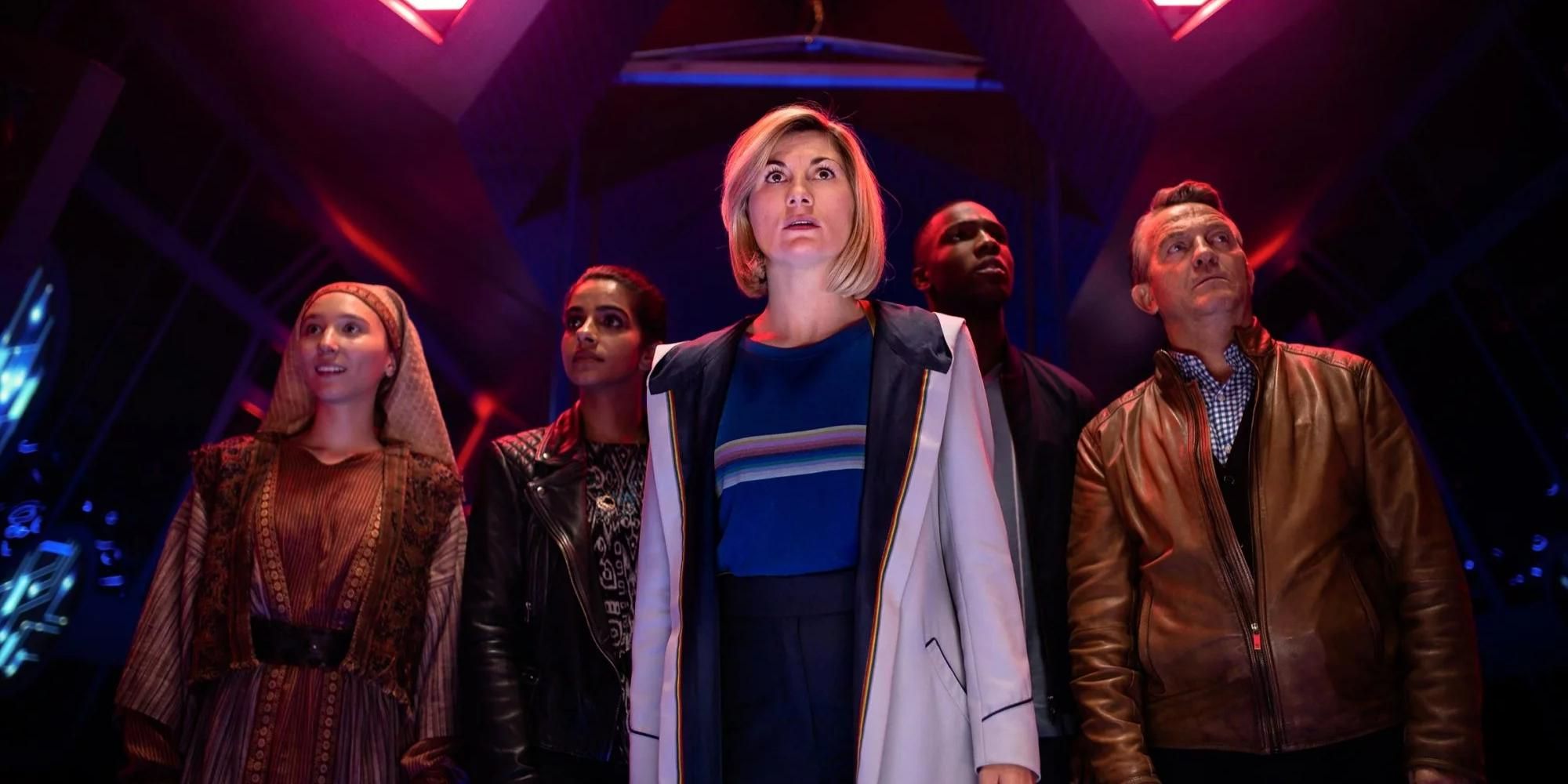When Jodie Whittaker exits the TARDIS for the final time, her regeneration could – and perhaps should – lead to weekly Doctor Who guest stars playing different versions of The Doctor. When William Hartnell’s health began to deteriorate, Doctor Who producers decided he could no longer continue in the leading role. They were also reluctant to axe one of the BBC’s biggest shows, thus the concept of regeneration was born. Although the specifics (and even the name) weren’t established until much later, the transition from Hartnell to Patrick Troughton marked the beginning of a long-standing tradition, where the role of The Doctor would pass from one actor to another, right up to Jodie Whittaker’s casting in the present.
The Whittaker era of Doctor Who has, for better or worse, become defined by the Timeless Child storyline. As revealed in the final episode of Doctor Who season 12, The Doctor hails not from Gallifrey, but from an unknown alternate dimension. Her mysterious powers and otherworldly biology were exploited to create the Time Lord race, while The Doctor was employed by a shadowy agency known as The Division. These memories were erased, leaving The Doctor ignorant to her own past.
Rumors suggest Jodie Whittaker will leave Doctor Who after the upcoming season 13, and if true, producers will already be dreaming up potential candidates to replace her. No doubt usual suspects Kris Marshall, Paterson Joseph, and James Nesbitt will do the tabloid rounds once again, but instead of taking the conventional route of casting one new Doctor to succeed Jodie Whittaker, Doctor Who should seize upon the Timeless Child, and spend an entire season casting guest stars as different Doctors before eventually settling on a permanent replacement.
How The Timeless Child Allows For Guest Doctors

The Master’s Timeless Child explanation in Doctor Who season 12 revealed that William Hartnell’s Doctor wasn’t even close to being the first. An unspecified number of Doctors existed prior to “An Unearthly Child,” including the young girl who fell through the portal, a small boy with a bowl cut, the so-called “Morbius Doctors,” and Jo Martin’s Fugitive Doctor. Previously, Doctor Who rules dictated that Time Lords could only regenerate 12 times, unless they were afforded a new cycle. It now seems this limit was put in place by the leaders of Gallifrey, and The Doctor’s biology actually allows for unlimited regenerations. With that old 12-story ceiling in place, Doctor Who had no choice but to treat regeneration with reverence and respect, and only on a handful of occasions have the rules been bent (such as David Tennant’s near-miss with a Dalek). But over 30 different regenerations are now canon thanks to the Timeless Child, and infinitely more lie in The Doctor’s future. The process isn’t as big a deal as it used to be.
In future Doctor Who seasons, the title character can regenerate as many times as the story demands without fretting over limits, or devaluing the regeneration gimmick by tossing new Doctors into the mix at random. That ship has very much sailed. Thanks to the Timeless Child reveal, Doctor Who can now use regeneration as a plot device, rather than exclusively to switch lead actors, and for the very first time, can explore an idea fans have long dreamed of – a Doctor that keeps spontaneously regenerating.
This premise actually appeared in BBC Comic Relief special, “The Curse of Fatal Death.” The likes of Rowan Atkinson, Hugh Grant and Joanna Lumley all portrayed The Doctor within a single episode, dying and regenerating multiple times throughout. Although the skit was obviously played for laughs, the Timeless Child means something similar could now happen in the main show.
The Doctor’s Regeneration Has Always Been Unreliable

Regeneration has always been a troublesome process for The Doctor. Some have needed outside assistance from mysterious beings, others required a nap and a strong cup of tea, and the Sixth Doctor stayed grumpy for an entire season. Given the inherent unpredictability of regeneration, it’s feasible that a Doctor’s transformation could become unstable, skipping like an old vinyl record. In practice, the Doctor wouldn’t be able to hold a form longer than a few hours, adding an exciting new dynamic to the show.
We’ve seen in previous regenerations how outside influences can make a Time Lord’s transition more difficult – the Tenth Doctor almost destroying his TARDIS after absorbing a ton of radiation and regenerating into Matt Smith, for example. When Jodie Whittaker’s final adventure arrives, the cause of her regeneration could be so severe that the process enters a state of flux, uncontrollably burning through one form after the next in a whirlwind of constant personality changes. When The Doctor finally discovers how to stabilize the errant regeneration process, their final form would be the actor who’ll replace Jodie Whittaker proper in the TARDIS, at which point Doctor Who would return to its conventional format.
Guest Doctors Means Bigger Stars (& Returning Faces)

Over 50 years later, Doctor Who‘s lead role remains a highly coveted gig. It’s also an incredibly demanding role, and not at all accommodating to other shows or movie work. This means A-list actors who might like the idea of playing The Doctor could never commit to the required schedule. By casting actors to play The Doctor for a single episode, however, Doctor Who can attract all manner of Hollywood stars and otherwise unattainable names who would be perfect for the part. The likes of Tilda Swinton, Ian McKellen, and Ewan McGregor come to mind, and John Hurt’s War Doctor proves the theory holds weight.
The guest Doctors needn’t be picked solely from Hollywood’s finest – the concept would allow Doctor Who to play with unusual castings that would never work in the long-term, such as a child Doctor. Despite essentially being a show for the younger audience, The Doctor has always taken the form of a fully-grown adult, on the outside, at least. But for a single episode, a talented young actor at the helm of the TARDIS would represent a fascinating deviation from the norm.
Another tempting advantage is the opportunity to bring back previous Doctor Who actors. Thanks to Tom Baker’s Curator and Peter Capaldi’s Twelfth Doctor, we know regeneration can recycle or recreate faces from the Time Lord’s old lives, meaning anyone from Doctor Who‘s illustrious past could return. An episode with Billie Piper as The Doctor, or Sylvester McCoy back in the TARDIS would be most welcome, and one adventure could even reintroduce the Valeyard.
Doctor Who Needs Some Regeneration Of Its Own

The current state of Doctor Who isn’t quite as dour as Jodie Whittaker detractors might have you believe. A gradual ratings decline can be partially blamed on the rise of on-demand services, and despite the controversial ending, Doctor Who season 12 gave fans the Sacha Dhawan Master-stroke, and a stone cold classic in “Fugitive of the Judoon,” proving even the most divisive eras still boast highlights. With that said, Doctor Who isn’t enjoying the viewership figures and critical acclaim of the late 2000s and early 2010s.
Sending The Doctor into a state of regenerative flux after Jodie Whittaker’s departure could help reinvigorate the show, shaking up the formula and bringing a sense of unpredictability back into the TARDIS. Viewers would be constantly guessing when the next regeneration could happen – during a vital speech, in the midst of saving the world, on the toilet, etc. Moreover, digging into the various personas of The Doctor would allow for an in-depth introspective into the iconic character’s ever-changing mindset.
It goes without saying that the Timeless Child story is going to cause major canon ruptures in Doctor Who season 13, so it’s vital to seize upon every benefit the retcon brings. Permission to finally do a constantly regenerating Doctor is one such benefit, and could prove the revitalizing cup of tea Doctor Who needs to recapture that missing magic.





